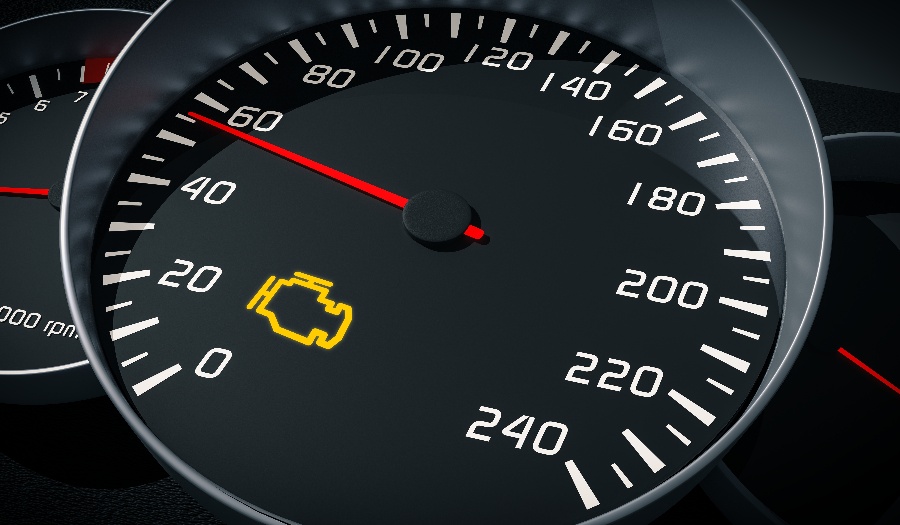
If you drive a gas-powered vehicle, you are already familiar with the check engine warning light. This signal can create a mix of emotions for different drivers.
For instance, you may wonder what is wrong with your car or truck that you parked without a problem when the engine light turns on after ignition. A more frightening case is when the engine warning light turns on while you're behind the wheel.
Well, the check engine light is part of the onboard diagnostic system of your car and is designed to protect the vehicle from damage and for your safety. The light is usually depicted by an engine symbol, and for most vehicles, there may be words on the side, such as "check", "check engine", "check powertrain", etc.
All of them mean the same; there is something wrong with the powertrain, not necessarily a serious issue, but one that needs your attention.
What Does Check Engine Light Mean?
Typically, when starting up your vehicle, several lights on your dashboard, including the engine light, will turn on. However, most of them should go off after a few seconds. If the check engine light doesn't turn off or starts to flash, it shows a problem with your vehicle's powertrain.
The light is often yellow, orange, or red. A continuous yellow light may indicate the problem is not a serious one. On the flip side, a flashing yellow light or, in some cars, a consistent orange/red light instead of yellow may indicate severe errors within your powertrain.
Common Causes of Engine Warning Light Turning On
To be sincere, you cannot tell the cause right away after the light activates. However, there are a few explanations why the warning light is on:
1. Loose gas cap
If your engine warning light turns on not long after refilling, the gas cap might be the culprit. The cap is meant to create a vacuum, and if, for any reason, the air is penetrating through it, the light will come on.
2. Transmission issue
The transmission module is responsible for conveying the engine power to the wheels to make the car navigate. If the car's computer detects a problem within the transmission, it lights the engine warning light.
3. Problem with emission
Modern cars have improved technology to reduce harmful emissions to the environment. One issue may be with the catalytic converter. As part of the exhaust system, the converter controls the amount of pollutants allowed to come out of the exhaust.
Therefore, if the sensors detect unsafe levels of harmful gases, the control will turn the check engine light on. The failure of exhaust gas recirculation (EGR) may also turn the warning light on.
4. Little or excess air/fuel in the combustion chamber
For your car's engine to function optimally, it must receive the correct amount of gas and air. If either of the supplies is low or high, the control system will trigger the check engine light.
5. Ignition system failure
If there is an issue with the spark plugs, coil packs, or any other ignition component, the car's inbuilt computer will signal the problem by turning the check engine light on.
What Should You Do When the Engine Warning Light is On?
It's absolutely normal for the engine light to turn on when starting the vehicle, and it should go off after a few seconds. Otherwise, if the light stays or turns on when you're on the road, you can do the following:
- Check the fuel cap and tighten it if it is loose. If the light goes away after this, you're good to go.
- If the light is a consistent yellow, the problem may not be serious, but you need to schedule a car or truck service as soon as possible.
- If the light turns on and off intermittently, or its color is orange/red instead of yellow, there may be a severe problem. If you're on the road, smoothly slow down, pull over, and call a professional auto repair
No check engine light should be ignored. As a rule of thumb, first, monitor the car's performance when the check engine light turns on. If you can't detect anything wrong, cautiously drive the vehicle to the next service station. However, if there are any unfamiliar sounds or performance issues, stop driving as soon and call for service.
Effortlessly Manage and Service Your Fleet
Keeping all your vehicles in good shape can easily be an overwhelming and time-consuming task. Instead, you should focus on what you know best and leave this division of your business to experts.
When you choose Wilmar, you choose over 40 years of experience in fleet management and servicing. Talk to us today to learn how you can get started.








